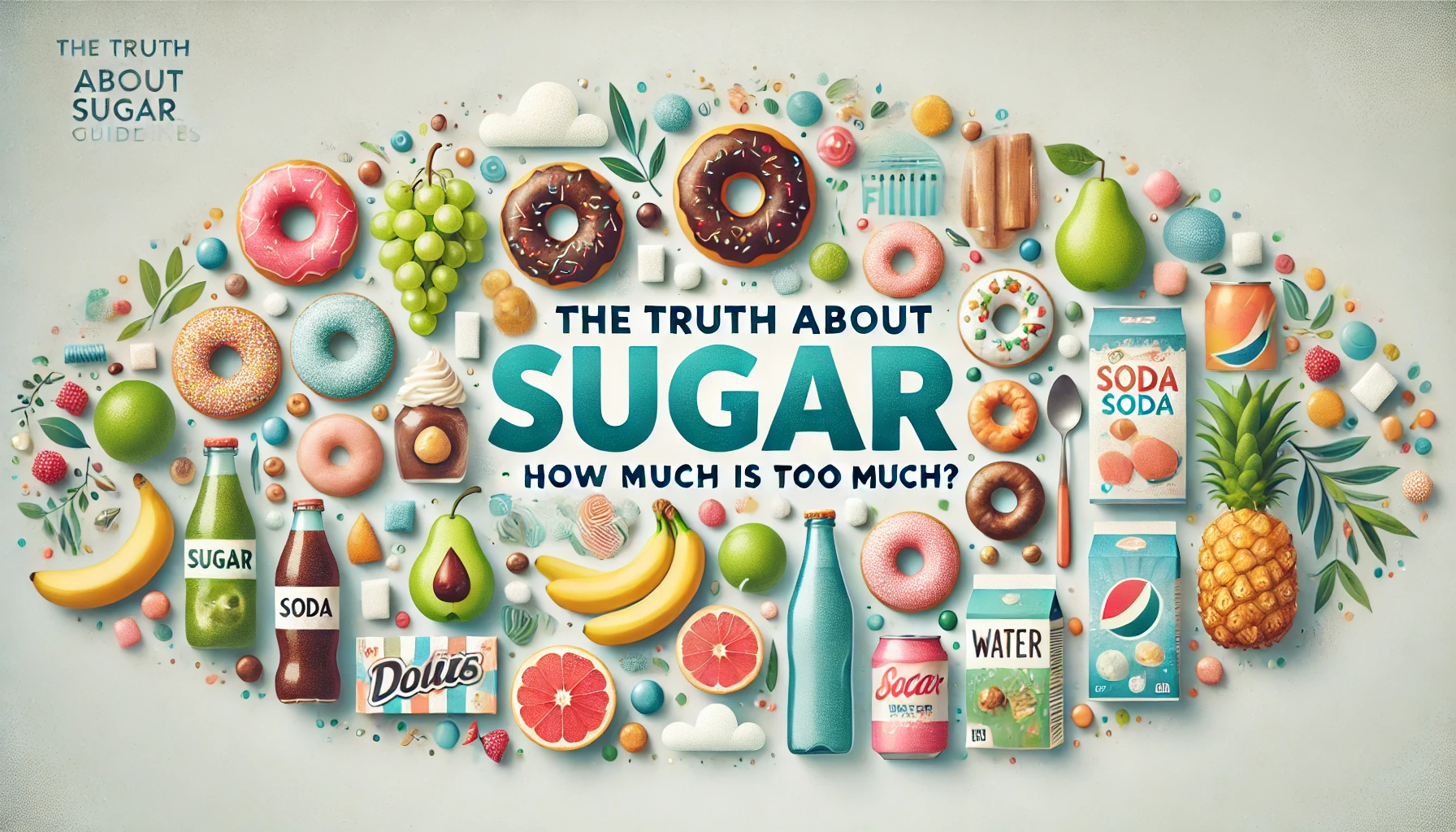Sugar is an essential part of many diets. Knowing how much is too much can make all the difference in your health. By following sugar intake guidelines, you can enjoy sweets responsibly and avoid the risks of overconsumption. Let’s explore the role of sugar in your diet and why moderation matters. Understanding sugar intake guidelines is essential for managing your health.
What Is Sugar?
Sugar is a type of carbohydrate that provides energy to the body. It comes in two main forms:
- Natural Sugars: Found in whole foods like fruits, vegetables, and dairy.
- Added Sugars: Sugars that are added during processing, such as high-fructose corn syrup or cane sugar.
While natural sugars come with fiber and nutrients, added sugars are often “empty calories” with no nutritional value.
The Role of Sugar in the Body
Sugar is broken down into glucose, which fuels the brain, muscles, and other tissues. However, excess sugar is converted into fat, which can accumulate in the liver and lead to long-term health problems. This makes portion control critical. Following sugar intake guidelines can help you prevent chronic illnesses.
Why Sugar Intake Guidelines Are Crucial for Health
The World Health Organization (WHO) suggests that:
- Adults and children should limit added sugars to less than 10% of their daily calorie intake.
- For a 2,000-calorie diet, this translates to about 50 grams (roughly 12 teaspoons).
The American Heart Association goes even further, recommending:
- Men: No more than 36 grams (9 teaspoons) per day.
- Women: No more than 25 grams (6 teaspoons) per day.
The Hidden Sources of Sugar
Many foods contain sugar in forms you might not expect. For instance:
- Condiments: Ketchup and barbecue sauce are loaded with sugar.
- Breads and Cereals: Often sweetened to enhance flavor.
- Yogurt: Even “low-fat” versions can be sugar traps.
Learning to read labels can help you identify these hidden sources.
Signs You’re Consuming Too Much Sugar
Too much sugar can manifest in various ways, including:
“Understanding Sugar Addiction” – Harvard Health
- Constant fatigue or energy crashes.
- Weight gain, especially around the abdomen.
- Frequent cavities or gum disease.
- Increased cravings for sweet foods.
If these sound familiar, it might be time to reevaluate your sugar intake.
Health Risks of Excessive Sugar
Excessive sugar consumption is linked to:
- Type 2 Diabetes: Consistently high blood sugar can lead to insulin resistance.
- Heart Disease: High sugar intake increases blood pressure and cholesterol.
- Obesity: Sugary foods are calorie-dense but not filling.
- Liver Disease: Excess sugar is stored as fat in the liver, potentially causing nonalcoholic fatty liver disease.
How to Stay Within Sugar Intake Guidelines Every Day
“Too much” depends on your body’s needs and lifestyle. However, as a general rule:
- Stay under 10% of daily calories from added sugars.
- Opt for whole, unprocessed foods to naturally limit sugar consumption.
- Balance sweet treats with nutrient-dense meals.
Healthy Sugar Alternatives
If you’re looking to cut back, here are some natural and artificial sweeteners to consider:
- Stevia: A zero-calorie plant-based sweetener.
- Monk Fruit: Naturally sweet and calorie-free.
- Honey: Better than refined sugar but still calorie-dense, so use sparingly.
FAQs
Over time, excessive sugar can lead to obesity, diabetes, heart disease, and other chronic conditions.
Natural sugars come with fiber and nutrients, which help moderate absorption, unlike added sugars.
Drink more water, eat fiber-rich foods, and ensure adequate protein in your diet to keep cravings at bay.
Most sugar substitutes are safe in moderation. However, consult your doctor if you have specific health concerns.
Sugar enhances flavor, extends shelf life, and improves texture, making it a favorite among food manufacturers.
Conclusion
The truth about sugar lies in moderation. While it’s not necessary to eliminate sugar entirely, being mindful of your intake can dramatically improve your health. You can take control of your diet by understanding hidden sugars. Recognizing the risks is also important. Adopting healthy alternatives helps you enjoy a more balanced lifestyle.



